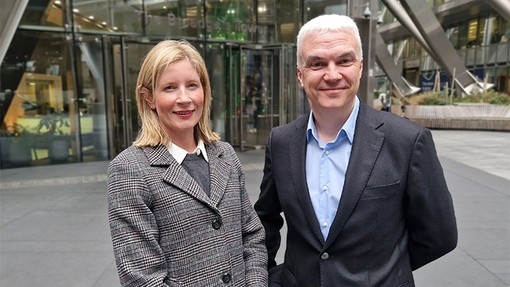Litigation privilege – further clarity?

Details
We have reported in previous editions on the narrow interpretation of litigation privilege as applied by the High Court in the Director of the Serious Fraud Office -v- Eurasian Natural Resource Corporation Ltd [2017] EWHC 1017 QB (Eurasian decision) where it was held that certain documents prepared in the context of an internal investigation and correspondence with the SFO were not subject to litigation privilege, but as we await the Court of Appeal’s decision on this later this year, the High Court decision in Bilta (UK) Ltd (in Liquidation) -v- Royal Bank of Scotland [2017] EWHC 3535 (Ch) provides some comfort to companies, as it was held in that case that documents produced as part of an internal investigation including transcripts of interviews with employees and exemployees were in fact privileged.
The decision therefore casts some doubt on general applicability of the Eurasian decision, although guidance from the Court of Appeal and possibly the Supreme Court may well be necessary.
Facts
Bilta involved an application by the liquidators of the company for disclosure of documents relating to an investigation carried out by RBS into VAT over claims relating to MTIC fraud (missing trader intra-community fraud). The substantive claim was that RBS had ignored the fraud and the claim was one of dishonest assistance under S213 of the Insolvency Act 1986. MTIC fraud, involves the abuse of VAT rules on cross-border transactions within the EU. It relies on the fact that no VAT is chargeable on such transactions. HMRC had previously sought to recover from RBS £90 million of input tax reclaimed by RBS on MTIC fraudulent transactions and the liquidators of Bilta wanted sight of documents relating to HMRC’s dealings with RBS on this issue.
RBS’s position was that the documents were litigation privileged because they had been prepared in contemplation of litigation, namely the documents were prepared in the context of internal investigations dealing with HMRC’s claims. In investigating HMRC’s claims, RBS had appointed lawyers to take witness statements from a number of employees and former employees of RBS and a report was supplied to HMRC by RBS which specifically stated that privilege was not waived in the document.
To recap the test for litigation privilege as set out in Three Rivers District Council and others -v- Governor and Company of the Bank of England (No 5) [2003] EWCA Civ 474 by the Court of Appeal, is that communications between parties or their solicitors and third parties for the purpose of obtaining information or advice in connection with existing or contemplated litigation qualify for litigation privilege if, at the time of the communication in question, the following conditions are satisfied:
- Litigation is in progress or reasonably in contemplation
- The communications are made with the sole or dominant purpose of conducting that anticipated litigation
- The litigation must be adversarial, not investigative or inquisitorial
In Bilta the parties accepted that on the facts, litigation was in reasonable contemplation at the time the documents were produced. The issue was whether the documents satisfied the sole/dominant purpose test.
Decision
In the Bilta case, Sir Geoffrey Vos held that RBS had been entitled to assume that an attempt by HMRC to recover the input tax was highly likely and that the dominant purpose for which the documents were produced was in preparation for defending HMRC’s claims. The fact that RBS had cooperated in providing information to HMRC did not negate the adversarial situation RBS found itself in. It is interesting that Sir Geoffrey Vos specifically referred to the fact that attempts to settle a prospective claim before it materialises should be considered to fall within the litigation scenario not outside it.
It was stressed that the purpose for which a document comes into existence must always be established in the context of the specific facts of a case and it should not be assumed that conclusions reached in one case will similarly apply to another case involving different facts. This could be viewed as an obvious way to differentiate the Eurasian decision and the case is a welcome statement confirming that in principle internal investigations can (depending on their facts) attract litigation privilege, something that has been called into question by the Eurasian decision.
Tension with the Eurasian decision
The narrow approach to litigation privilege applied in the Eurasian case seems at odds with the Bilta case, where both cases were dealing with documents generated in the context of internal investigations albeit the Eurasian case involved the Serious Fraud Office and Bilta, HMRC. The tension was resolved by Sir Geoffrey Vos by distinguishing whether documents are created for the sole/ dominant purpose based on the facts of each case.
Summary
Whilst we await the Court of Appeal decision in Eurasian later this year (hearing is scheduled for July 2018), corporates should still exercise caution. It remains difficult to formulate clear guidelines on the circumstances when documents prepared for the purposes of internal investigations will be litigation privileged and it may still prove to be the case that reports and findings of internal investigations may be disclosable to regulators, enforcement agencies or other parties. The factual background to the circumstances in which documents are created is ever more important and requires careful consideration.
For further information on internal investigations or privilege issues please contact the author.





